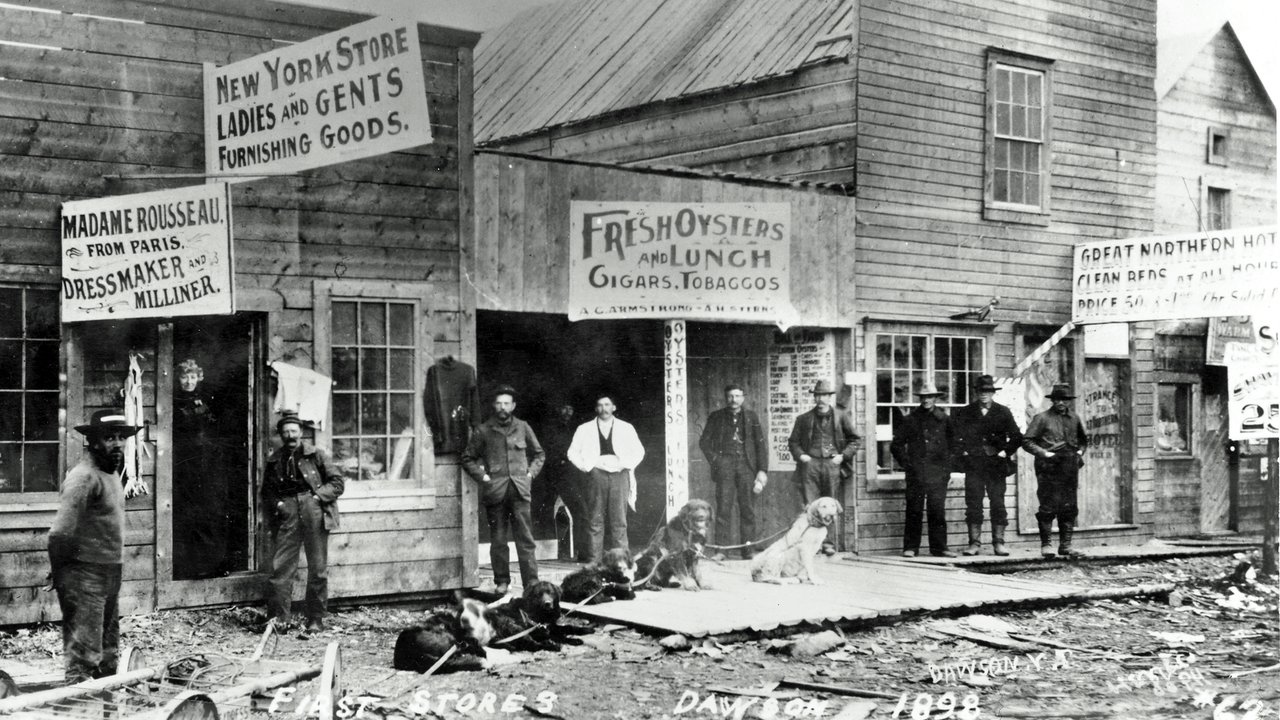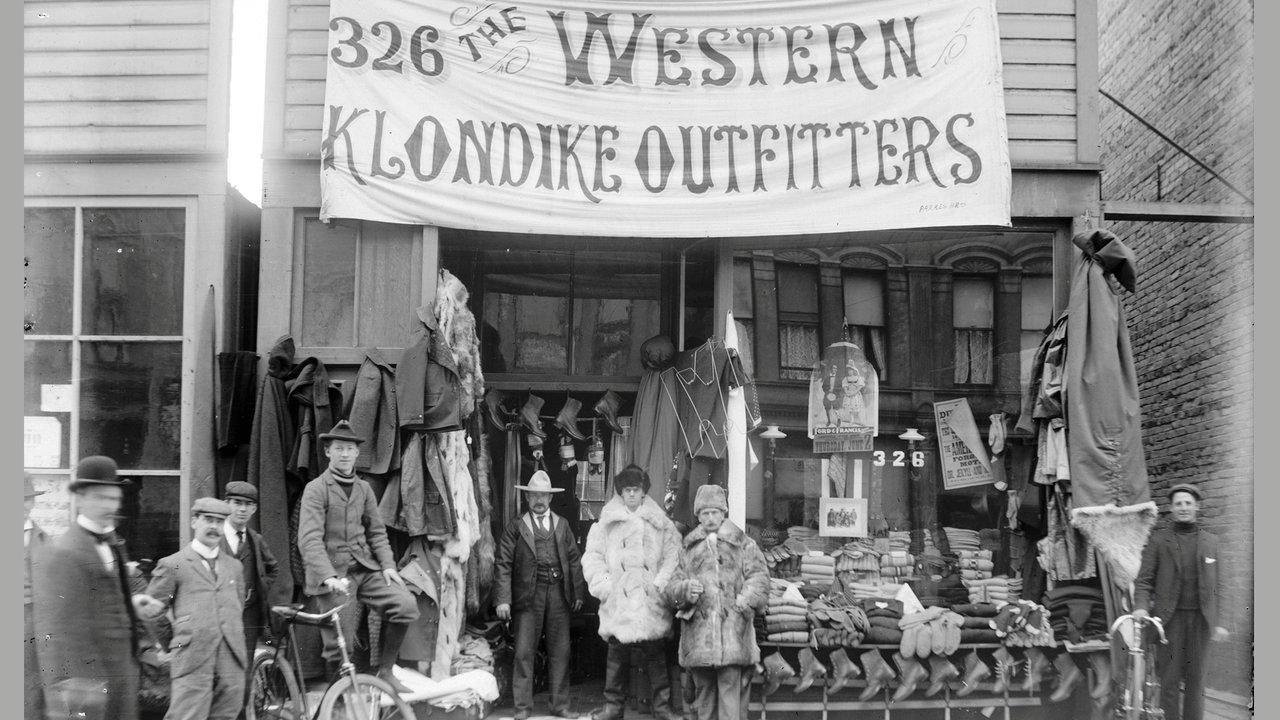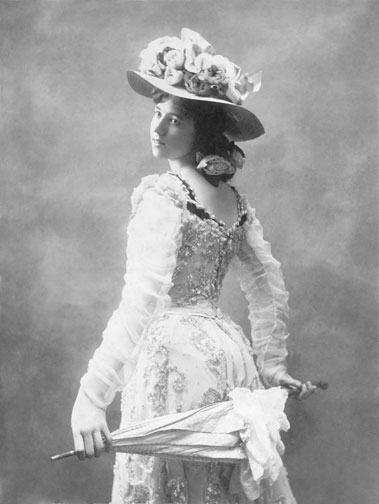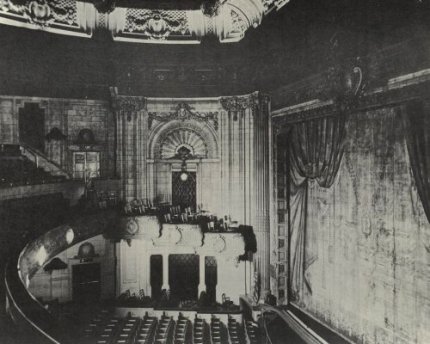A young Greek runaway turned Klondike gold prospector, janitor, to eventual multi-millionaire impresario. The story of theater- and Vaudeville-mogul Alexander Pantages is a tragic real life rags-to-riches story.
The Life of Alexander Pantages
Early Life
Alexander Pantages was born as Pericles Pantages on the Greek Dodecanese Islands, likely Andros, around 1864. Documentation for his exact birthplace and date is unknown. At nine years old, Pericles ran away from his father and changed his name to Alexander.
He began his career in construction work on the building of the Panama Canal. He moved to San Francisco in 1896 to start a career as a restaurateur. Before long, Pantages uprooted himself yet again. He left the restaurant industry to capitalize on the Klondike Gold Rush, joining the great stampede of 1898. In the wilds of Alaska, Alexander Pantages began his journey into theater.
Images courtesy of:
Images courtesy of:
A Different Kind of Gold Rush
Alexander Pantages mvoed to Skagway, Alaska for the Goldrush. While there he tries to open his first theater. However, Skagway’s importance in the gold rush dwindles due to a new route that renders the town obsolete as a pit-stop for aspiring gold miners. Traffic to the theater dried up with the town, and Pantages first theater closed. Alexander took on odd jobs (including being a trail guide on a trail he’d never been on before) and ultimately arrived in Dawson City, Canada Yukon. He, like many stampeders, were directionless. Yukon historian Michael Gates writes,
“The stampeders, who had been so intent upon reaching the goldfields, seemed to lose their sense of purpose once they arrived. Thousands milled about the streets that paralleled the river. Those who weren’t looking for gold were looking for amusement, and there were plenty of attractions to meet their needs. Front Street consisted of various retail stores, saloons, dance halls and theatres. Many of the establishments never closed their doors, and gambling continued 24 hours a day.”
-Gates, Michael. “Front Street in Dawson City Was a Klondike Broadway.” Yukon News, Yukon News, 5 July 2018, www.yukon-news.com/opinion/front-street-in-dawson-city-was-a-klondike-broadway/.
Once in Dawson City, Pantages observed the bustling theater and entertainment scene for these gold miners. He took a job as a janitor to sustain himself while he planned his way into the Dawson City nightlife.
The Orpheum
While in Dawson City, Alexander Pantages met the popular burlesque/vaudeville entertainer Katherine “Klondike Kate” Rockwell. She and Pantages soon opened a theater in a joint venture called “The Orpheum”. Pantages reportedly claimed to have been making $3,000-5,000 per night. Theater life and entertainment were so popular in Dawson City, that the theatrical establishments on Main Street were rumored to be the first businesses to receive electrical connection & lighting.
While their joint venture theater prospered, Rockwell and Pantages were said to have had a passionate yet ephemeral affair. Pantages sadly yet again packed his belongings in 1902 and moved to New York, for his supposed amassed $500,000 fortune had been lost on “bad deals
Images courtesy of:
Images courtesy of:
The Pantages Empire Begins
Alexander Pantages spends a year in New York trying to reclaim some of his losses through investments. He then decides to move West again, this time to Seattle in 1903. His first theater endeavor in Seattle is a project he built (and ran single-handedly) called the “Crystal Theater”. It was to play both vaudevilles and motion pictures.
His self-named theater came just a year later while in Seattle. This is considered to be the first true “Pantages Theater”.
While in Seattle, Pantages met a young and talented violinist from California named Lois Mendenhall. They married in secret, however Pantages disclosed the marriage to Klondike Kate in a letter shortly afterwards. Kate sued Pantages for breaking a promise to marry her. The two ended up settling the lawsuit out of court for a $25,000, a staggering amount at the time.
Growth, Success, and Expansion
While in Seattle, Pantages faced quite a bit of adversity upon his arrival. His immigrant status and limited English was met with discrimination and resistance from the Seattle theater community. This made it was difficult for Pantages to attract acts that would generate substantial business (especially for a theater that was sometimes staffed by himself). Subsequently, he also experienced more “bad deals” with business partners, which reinforced his lone-wolf career mentality.
Even though Pantages was discriminated against in Seattle, he expanded his theater investments to Denver, Spokane, Tacoma, and San Francisco. What fueled his success was personal involvement in the theater process. He pushed for theaters to be allowed to stay open on Sundays for the working class, for example. He also promoted keeping performances short to keep both audience retention and turnover high.
Pantages ultimately owned and/or operated over 70 vaudeville and motion picture houses across the United States. It is rumored that he had personal involvement with ownership or operation in all of his theaters.
Alexander Pantages eventually built a mansion in Seattle in 1906 and owned multiple seasonal homes. The Seattle mansion still stands today and is on the National Register of Historic Places.
Images courtesy of:
Images courtesy of:
Trouble in Theater Town
By 1918, Pantages had amassed over $5,000,000 (equivalent to $85,000,000 as of 2020) from his theater circuits which dominated the western United States. Their continued success was due to his meticulous selection of performers and intermittent showing of motion pictures between vaudevilles.
However, throughout the mid 1910’s and 1920’s, motion pictures had begun to grow in popularity, especially with technology that made “talkies” (films with recorded soundtrack or dialogue) accessible to many motion picture houses. This led to the eventual decline of income from vaudeville entertainment.
Competitor John Kennedy with RKO (Radio Keith Orpheum) tried to make a deal to buy 15 theaters and their respective assets Pantages owned in April 1929 for $15,000,000. After three months of deliberation, on July 25th, only six of the 15 theaters were sold to RKO for about $5,000,000. Weeks later on August 7th, the flagship theater in Los Angeles and one other were sold to Warner Brothers. The only one he kept was the one pictured to the left, the Hollywood Pantages, which opened in 1930. It was the last theatre to be built by B. Marcus Priteca for the impresario. It too was sold to Fox West Coast Theaters two short years later in 1932.
The Empire Falls
Between the fall of vaudeville and the rise of movies, Pantages career was severely crippled. However, just months after selling his theater chain, a young woman, named Eunice Pringle claimed that Mr. Pantages had sexually assaulted her. She said the attack took place in his office as she tried to get a position as a dancer in one of his theaters. This accusation severely tarnished his reputation. Three weeks later, Black Monday, the day that the stock market crash of 1929 happened and the Great Depression began. In addition, Mrs. Pantages had killed a man while drunk driving on Sunset Boulevard and was facing charges simultaneously for murder.
You can read an extremely detailed account of the specifics of the Alexander Pantages trial and the case here.
After a long, tumultuous trial and strongly worded coverage in the Los Angeles Herald written by William Hearst, Mr. Pantages was found guilty and was imprisoned in San Quentin until June, 1930. He had suffered a multitude of health complications and eventual heart attacks in prison and was therefore granted bond on $100,000. The trials of both Mr. and Mrs. Pantages had depleted a great majority of their wealth, and once released, Mr. Pantages retired in poor health and took up horse race gambling.
In interviews and publications in the years following the trial, Eunice Pringle and her mother eventually let light into the fact that the Pantages trial could have been part of a conspiracy. A deathbed note left by Pringle said that Joseph P. Kennedy of the RKO company may have paid her to frame Pantages, forcing his hand to sell the theater empire for less to RKO. Some say that Pringle did it for publicity and fame. Others say that Pantages had always been curt and had been known to have crossed boundaries with some of the dancers.
Images courtesy of:
























